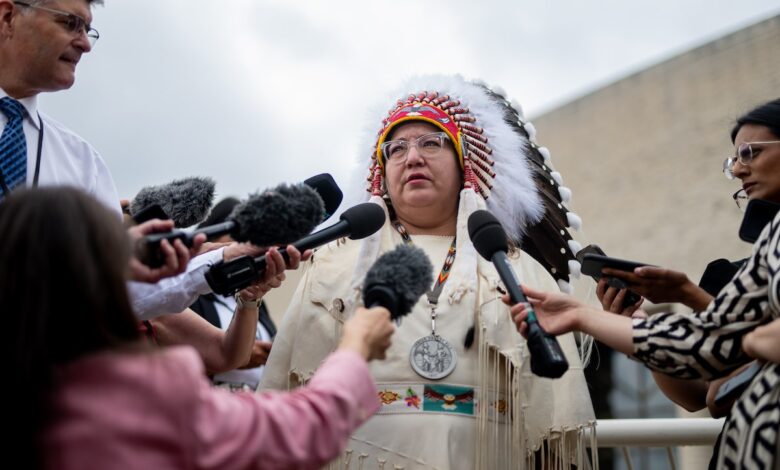Discussion of the laws of the large projects that are expected to dominate the AFN meeting

Indigenous Leaders Gather in Winnipeg to Discuss Economic and Land Issues
Indigenous leaders from across Canada are convening in Winnipeg this week to engage in discussions about utilizing key government legislation to enhance their communities. At the same time, they are focused on ensuring their participation in discussions around economic matters, land rights, and critical mineral development.
Prime Minister Mark Carney and his ministers have been in talks with indigenous leaders over the summer to address concerns related to the implementation of legislation. While some First Nations Chiefs have expressed apprehension about potential impacts on treaty rights and environmental protections, others are cautiously optimistic about the opportunities it may present.
Chief Cindy Woodhouse Nepinak of the Assembly of First Nations (AFN) emphasized the importance of meaningful conversations about economic development, land issues, and shared goals. She believes that the current climate provides a unique opportunity for constructive dialogue on these pressing issues.
Key Discussions and Resolutions
During the AFN annual general meeting, legal experts will provide insights on Bill C-5, a significant piece of legislation that is under scrutiny. The meeting, scheduled from 3 to 5 September, will see AFN leaders deliberating on various design presolutions that will shape the organization’s direction.
With 53 design presolutions covering a range of topics, including trade, border issues, and mining, the focus is expected to center on discussions related to Bill C-5. This legislation, part of the Building Canada Act, aims to expedite project approvals for initiatives deemed to be in the national interest.
One of the proposed resolutions calls for addressing the infrastructure deficiencies in First Nations communities as a priority project under Bill C-5. This initiative, if passed, could significantly impact the development and well-being of indigenous populations.
Furthermore, discussions will revolve around constitutional obligations for consultation and consent, as outlined in the UN Declaration on the Rights of Indigenous Peoples. AFN leaders are also exploring strategies for promoting internal and international trade, with a focus on sustainable and equitable practices.
Looking Ahead
As the AFN meeting unfolds, leaders are optimistic about the potential for constructive dialogue and collaborative decision-making. By engaging in these crucial discussions, indigenous communities aim to shape policies and initiatives that will benefit their people and promote sustainable development.
With a focus on economic empowerment, land rights, and resource development, indigenous leaders are paving the way for a more inclusive and equitable future for all Canadians.




